Search
Did you mean: Eris?
Search Results
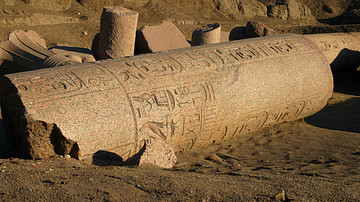
Definition
Third Intermediate Period of Egypt
The Third Intermediate Period (c. 1069-525 BCE) is the era following the New Kingdom of Egypt (c. 1570-c.1069 BCE) and preceding the Late Period (c.525-332 BCE). Egyptian history was divided into eras of 'kingdoms' and 'intermediate periods'...
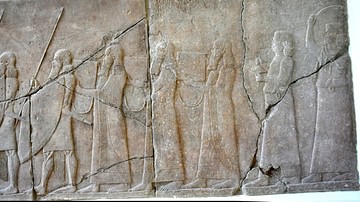
Article
Festivals in Ancient Mesopotamia
Festivals in ancient Mesopotamia honored the patron deity of a city-state or the primary god of the city that controlled a region or empire. The earliest, the Akitu festival, was first observed in Sumer in the Early Dynastic Period (2900-2334...
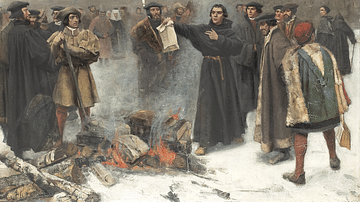
Article
Exsurge Domine
Exsurge Domine (“Arise, O Lord” in Latin) is a papal bull issued 15 June 1520 by Pope Leo X (served 1513-1521) condemning Martin Luther’s 95 Theses as heresy along with any other works by Luther or those who supported him. Luther burned the...

Article
Magic in Ancient Egypt
In ancient Egypt, if a woman were having difficulty conceiving a child, she might spend an evening in a Bes Chamber (also known as an incubation chamber) located within a temple. Bes was the god of childbirth, sexuality, fertility, among...
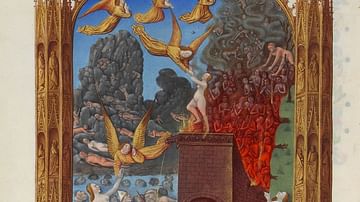
Article
Ghosts in the Middle Ages
The medieval Church informed the people's religious imagination during the Middle Ages (c. 476-1500) and the world was therefore interpreted - even by heterodox Christians - through the Church's lens. Ghosts – referred to as revenants – were...
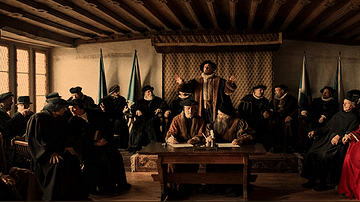
Article
Zwingli's On Rejecting Lent and Protecting Christian Liberty
Although Huldrych Zwingli (l. 1483-1531) began his Reformation efforts in Zürich in 1519, his first break with the Church came in 1522 when he defended a group of citizens who had broken the Lenten fast by eating sausages. The event, known...
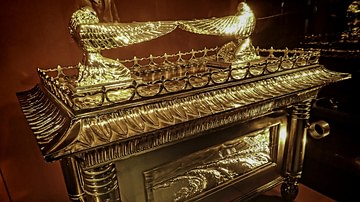
Definition
Ark of the Covenant
The Ark of the Covenant refers to the box-like container that held the tablets of the Law received by Moses on Mount Sinai. Tradition claimed that it contained two stone tablets, carved by God, listing the first ten commandments given to...

Definition
Ancient Egyptian Law
Ancient Egyptian culture flourished through adherence to tradition and their legal system followed this same paradigm. Basic laws and legal proscriptions were in place in Egypt as early as the Predynastic Period (c. 6000- c. 3150 BCE) and...

Definition
Temple
A temple (from the Latin templum) is a structure usually built for the purpose of, and always dedicated to, religious or spiritual activities including prayer, meditation, sacrifice and worship. The templum was a sacred precinct defined by...
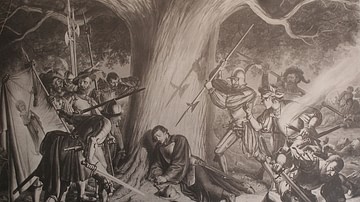
Definition
Kappel Wars
The Kappel Wars (also known as the Wars of Kappel) were armed conflicts between Protestants and Catholics in Switzerland during the Swiss Reformation. The First Kappel War ended before it began in 1529, while the second, in 1531, concluded...